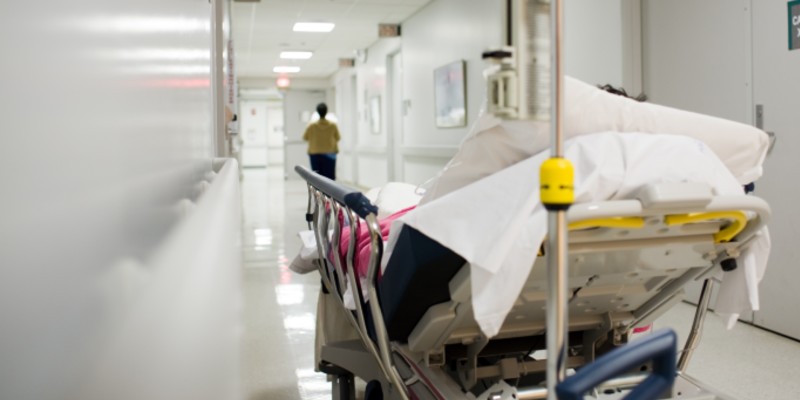News
Corridor care: 'Devastating testimony' shows patients are coming to harm
RCN report reveals harrowing statements from thousands of nursing staff, showing how widespread the issue is across the UK.

Connect with us:
Patients dying in corridors, lack of equipment and unsafe practices are the findings of a new RCN report documenting the experiences of more than 5,000 NHS nursing staff.
Almost 7 in 10 (66.8%) respondents to an RCN survey said they're delivering care in overcrowded and unsuitable places – such as corridors, converted cupboards and even car parks – on a daily basis.
Demoralised nursing staff report caring for as many as 40 patients in a single corridor, unable to access oxygen, cardiac monitors, suction and other lifesaving equipment. They report female patients miscarrying in corridors, while others said they cannot provide adequate or timely CPR to patients having heart attacks.
More than 9 in 10 (90.8%) of those surveyed said patient safety is being compromised.
RCN General Secretary and Chief Executive Professor Nicola Ranger said: "This devastating testimony from frontline nursing staff shows patients are coming to harm every day, forced to endure unsafe treatment in corridors, toilets and even rooms usually reserved for families to visit deceased relatives. Vulnerable people are being stripped of their dignity and nursing staff are being denied access to vital lifesaving equipment. We can now categorically say patients are dying in this situation."
A nurse working in the South East region said: “We’ve had cardiac arrests in the corridor or in cubicles blocked by patients on trolleys in front of them, delaying lifesaving CPR. Despite these 'never-events', we still are obliged to deliver care in the corridor."
More than a quarter of nursing staff surveyed said they weren’t told the corridor they were providing care in was classed as a "temporary escalation space", as described by the NHS in England.
This means risk protocols and additional measures may not be in place to ease pressures and protect patients.
Nursing staff also report cancer patients being put in corridors and other inappropriate spaces. In the South West region, a nurse said: “It was a cancer patient whose immunity was very low because of her treatment. She should’ve been in a side room. She was very upset and crying. We put screens around her but she was in the path of the staff room and toilet, so it was constantly busy. That poor lady eventually passed away.”
Our report follows a letter sent to the Westminster government and NHS England from an RCN-led coalition, calling on officials to publish how many patients are being cared for in corridors and other inappropriate places.
Nicola added: “The revelations from our wards must now become a moment in time. A moment for bold government action on an NHS which has been neglected for so long. Ministers cannot shirk responsibility and need to recognise that recovering patient care will take new investment, including building a strong nursing workforce.”
Read our full report to discover the extent of corridor care across the UK, as told by our members.
Whenever you see concerning practices in the workplace, including corridor care, raise a concern in line with your employer's policy. Raising concerns isn’t always easy, but it’s the right thing to do.
Read our guide on how to do this, created to help nursing staff based in both NHS and independent health and care settings.
You can find a package of resources to support you on our website, including a template letter, and member checklist to help with raising concerns and more.











